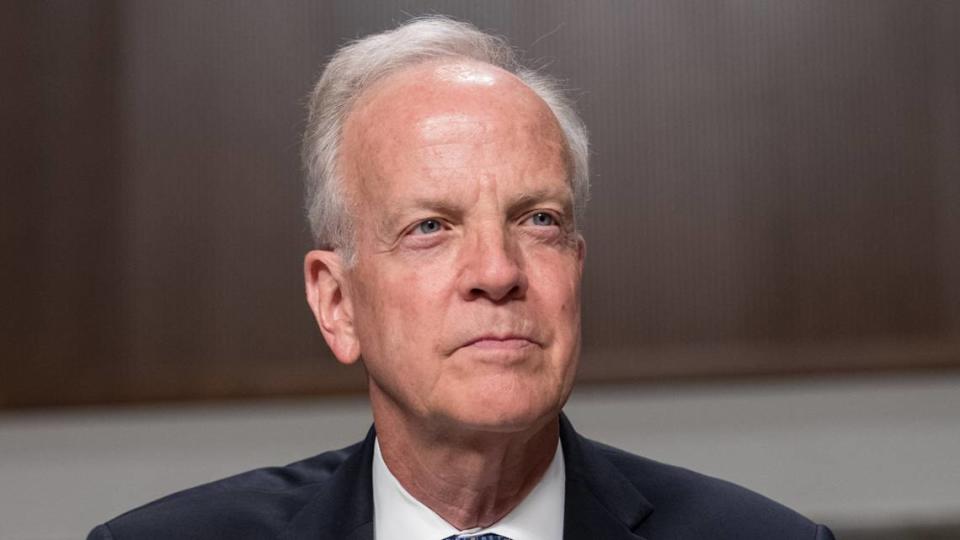Kansas Republican Moran signals he will support debt limit deal, warning on danger of default

Sen. Jerry Moran on Thursday signaled he would support a deal to avoid an historic default on the national debt, breaking from the other Republican senators from Kansas and Missouri.
In a speech on the Senate floor, Moran criticized federal spending while saying a default on the national debt would be devastating, painting it as an international threat that would increase China’s standing in the world because the standing of the U.S. dollar would decrease.
“Defaulting on the national debt would send a message that we are a nation that cannot be trusted to pay our bills,” Moran, a Kansas Republican in his third Senate term.
But Moran, the senior member of the Kansas delegation, stopped short of explicitly saying he would vote for the bill and his office would not clarify his position.
If he votes for the bill, Moran will likely be the only senator from Kansas and Missouri in favor of the deal as more conservative members of the Republican caucus have indicated they won’t vote for it.
The deal, negotiated by President Joe Biden and House Speaker Kevin McCarthy, raises the debt limit for two years until January 2025 while capping some federal spending and imposing work requirements on some social welfare programs.
It passed with bipartisan support in the House, with the support of eight of the 12 members from Kansas and Missouri.
The debt ceiling is effectively the credit card limit of the country — in order to borrow more money to pay for already approved spending, Congress has to raise the limit.
Sen. Josh Hawley, a Missouri Republican, told The Star earlier this week that he won’t support the deal because it doesn’t include anything about trade policy. Hawley had introduced a largely ignored bill to raise trade tariffs on China in an attempt to get it included in debt limit talks.
Sen. Roger Marshall, a Kansas Republican, has said criticized the bill in interviews because he doesn’t believe it does enough to reduce the federal deficit. The nonpartisan Congressional Budget Office estimated that the deal would reduce the federal deficit by $1.5 trillion.
Sen. Eric Schmitt, a freshman Missouri Republican, announced Thursday his plans to oppose the bill.
“In its current form, I cannot support this bill and will vote against it,” Schmitt said. “Runaway spending and a supercharged administrative state are grave threats to our country, and I look forward to working with my colleagues to reduce spending, enact structural reforms, and return power back to the people.”
Moran was critical of the deal, saying it isn’t something he would personally introduce and that he hopes there are amendments, even though it would be difficult for any amended bill to make it through Congress.
While the bill allocates money for veterans exposed to toxic burn pits — in support of legislation Moran helped push through Congress last year — Moran said he didn’t like the caps the legislation placed on defense spending, saying it wouldn’t keep up with inflation.
“This is a clash of a bad outcome of a default and the bad outcome of more spending,” Moran said.
But he listed several elements of the bill he did like — the fact that it clawed back some COVID-19 relief funds, that it cut $20 billion in recent funding to the Internal Revenue Service and that it incentivized Congress to pass 12 separate spending bills rather than a large package.
The bill is expected to pass the Senate by Friday, just days before Treasury Secretary Janet Yellen said the country would no longer be able to pay its bills.

 Yahoo Sports
Yahoo Sports 